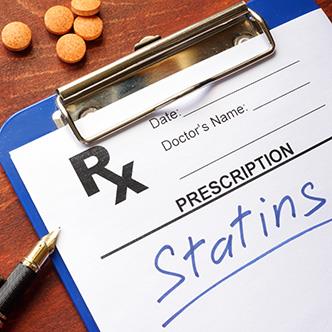
Claims about the negative effects of cholesterol-lowering statins may be exaggerated, based on a recent study that showed patients complain more of side effects only when they know they’re taking the drug.
Published in The Lancet, this study compared side effects from statin use in a blinded versus unblinded clinical trial.
In a blinded trial, patients are randomly assigned to a study drug or a placebo with no active ingredients, but are unaware which treatment they’re getting. This type of design helps eliminate the “placebo effect,” which occurs when patients perceive a change in their condition, despite having no active treatment. An unblinded trial, on the other hand, means that patients are aware of the exact medication they’re taking.
The recent analysis included data from the Anglo-Scandinavian Cardiac Outcomes Trial, which is the largest study of high blood pressure ever conducted in Europe. The study tested the cholesterol-lowering statin, atorvastatin, in more than 15,000 patients with hypertension and increased risk for heart events.
From 1998 to 2002, study participants were randomly assigned to atorvastatin or a placebo drug and followed for an average of three years. After finding that the statin was effective in reducing risk for heart events, researchers then “unblinded” the trial and offered atorvastatin to all participants for an additional two years. During the entire study, researchers collected information on known side effects of statins, including muscle pain, erectile dysfunction, sleep disruption and memory loss.
During the first three years of the study, researchers found that participants in both groups were equally as likely to report these side effects. In fact, the only difference researchers noted was that participants taking atorvastatin were 6% less likely to report trouble sleeping compared to those taking the inactive placebo.
However, once patients knew which treatment they were taking, reports of muscle pain – which is one of the most commonly reported side-effects of statin use - increased. During the second half of the trial, participants taking statins were 41% more likely to report muscle pain than those taking no statins. They were also more likely to report tissue disorders and blood and lymphatic system disorders than non-statin-users.
What this study shows, according to authors, is that patients are more inclined to report muscle pain when they know they’re taking statins. While that’s not to say that muscle pain isn’t a known side effect of statins, authors argue that patient claims may be exaggerated in many cases. Thus, findings should provide assurance that statins may not be as difficult to tolerate as we suspect. Findings also highlight the need for open communication between patients and their doctors when considering statin use to reduce cardiovascular risk.